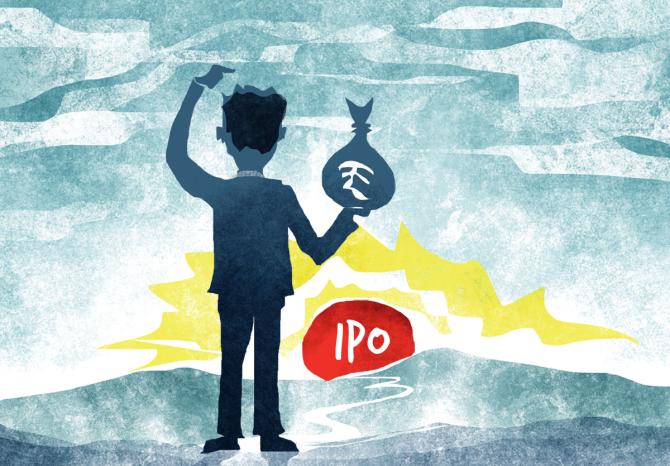Investment bankers laugh all the way to the bank with Rs 1000 cr earnings in 2021
Since the beginning of 2020, i-bankers have collected nearly Rs 1,800 crore by way of IPO fees. Interestingly, the India fees this year form just 1 per cent of the global fee pool of $13.7 billion from IPOs.

A flood of initial public offerings has helped investment bankers pocket record fees in 2021. The fees earned from IPOs so far this year stand at $137.7 million, or Rs 1,013 crore, the data from Refinitiv shows.
The year 2021 has already witnessed the launch of new offerings worth more than Rs 62,600 crore, the highest after 2017. That year had seen the second-highest fee mop-up of Rs 866 crore.
Since the beginning of 2020, i-bankers have collected nearly Rs 1,800 crore by way of IPO fees. Interestingly, the India fees this year form just 1 per cent of the global fee pool of $13.7 billion from IPOs.
“IPO fees are directly correlated to deal activity and volumes. The value of issuances so far this year is the second highest in any given year, and the fees earned are therefore commensurately higher,” said Pranav Haldea, managing director, Prime Database.
Food delivery firm Zomato’s Rs 9,375-crore IPO fetched record fees of Rs 229 crore for i-bankers, which is a sizeable amount for a large-sized offering. The fee pool may get a further fillip from new-age companies such as Paytm, Nykaa, Ixigo, MobiKwik, and PB Fintech, whose IPOs may hit the market in the coming months, said experts.
“New-age companies share a close association with bankers, who help them raise funds from private equity players. Given this backdrop, I would not be too surprised if they would be willing to shell out higher fees to the bankers when they hit the market for a public offering,” said Pranjal Srivastava, partner (ECM), Centrum Capital.
According to Haldea, there have not been too many PSU mandates this year and that has helped shore up the overall fees. “PSU mandates are typically large but offer lower fees to bankers,” Haldea said.
IRFC and RailTel Corporation of India are the only two public sector companies that launched their IPOs this year.
Investment bankers have quoted a fee of Rs 1 crore, the minimum set by the government, to bag the state insurer LIC’s IPO mandate, which is touted to be the country’s largest IPO ever and is expected to hit the market next year.
Fees charged by bankers typically range from 2 to 3 per cent of an issue’s size. The percentage of fees per issue this year, however, has stood at about 1.6 per cent because of the larger average issue size, data shows. Eighteen offerings had an issue size in excess of Rs 1,000 crore.
“This year has seen several large IPOs with issuances of more than Rs 1,000 crore. Bankers can make good money on these, although the fees in percentage terms could be lower than smaller offerings,” said Srivastava.
Issuers typically have two or three structures for distributing fees, according to experts. A fixed fee is distributed among all bankers handling the IPO mandate. Then there are variable fees, which could vary from transaction to transaction, and is dependent on parameters such as the procurement done by the banks on the institutional and retail/HNI side. Some issuers also keep a discretionary fee, which they pay if they are satisfied by the work put in by bankers.
A record 29 companies filed draft prospectuses for public listings with the market regulator in August, which saw eight IPOs.
The likes of Arohan Financial Services, Aditya Birla Sun Life AMC, Utkarsh Small Finance Bank, Fincare Small Finance Bank, Jana Small Finance Bank, Shriram Properties, Ruchi Soya Industries, GoFirst (erstwhile GoAir), Supriya Lifescience, and Seven Islands Shipping have received the regulatory nod for their IPOs. A few of these may tap the market in the coming weeks.
“The IPO pipeline looks strong and we may see a lot more deals in the last few months of this year, which could significantly add to the fee pool. The secondary market also remains buoyant with concerns around the Fed taper laid to rest for the time being,” said Haldea.
Source: Read Full Article

